On the morning of October 13, CIBOS held the 5th China-Korea Ocean Cooperation Symposium. The invited experts include Prof. KIM Hyunsoo from South Korea’s Inha University, Prof. BANG Hosam from South Korea’s Chonnam National University, Dr. CHOI Jee-hyun from Korean Ocean Research and Development Institute, and Mr. Tan Zhongzheng, the third secretary of the Ministry of Foreign Affairs. Prof. Kong Lingjie, Deputy Dean of CIBOS, associate professor Huang Wei and Dr. Wu Wei attended this activity. Participants conducted in-depth exchanges and discussions on issues related to "The cooperation between China and South Korea in the Yellow Sea and the East China Sea".
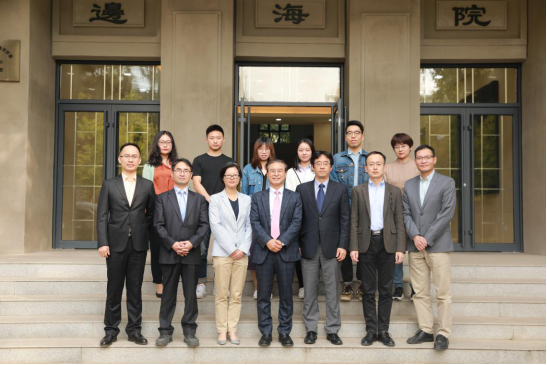
The symposium was presided by Prof. Kong Lingjie. The China-Korea Ocean Cooperation Symposium is a bilateral academic exchange mechanism jointly organized by the Institute and the Korean Water Works Association. The two sides take turns to host the event. And the issue setting of the symposium is closely linked to the practical problems in China-ROK marine cooperation, aiming to promote the deepening of research of Chinese and Korean experts in the field of the law of the sea.
Dr. CHOI Jee-hyun delivered a speech on “The possibility of marine cooperation between China and South Korea”. He first reviewed the projects of cooperation between China and South Korea and the joint research institutions since 2004, and then analyzed the possibility of more cooperation between the two countries in the future, and proposed that the two countries can further negotiate and sign bilateral treaties on maritime delimitation and marine spatial planning, in order to resolve issues that are currently controversial.

(CHOI Jee-hyun)
The theme of the speech of Mr. Tan was "Marine cooperation between China and South Korea." In his opinion, the Yellow Sea is a typical semi-closed sea and has not yet completed the maritime delimitation. As a coastal country of the Yellow Sea, China and South Korea have relevant cooperation obligations under the United Nations Convention on the Law of the Sea. In recent years, the cooperation between China and South Korea in the maritime field has achieved fruitful results: the two countries have initiated and are steadily advancing the maritime delimitation negotiations; the functional departments of the two countries have effectively safeguarded the fishery order of the framework of the China-Korea Fishery Agreement through friendly cooperation; the two countries have established multi-channel, multi-field and multi-level dialogue mechanisms for sea-related issues, and many pragmatic projects have been solidly promoted. China’s initiative to build a community of human destiny and the “Belt and Road Initiative”, especially the “21st Century Maritime Silk Road”, will effectively promote bilateral and multilateral international cooperation between China and South Korea in the marine field.
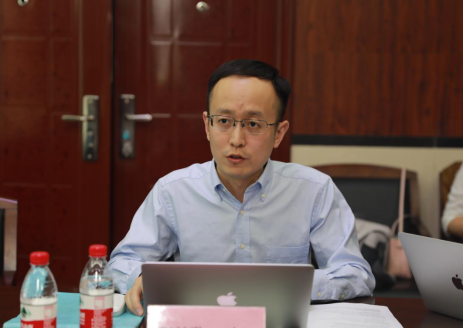
(Tan Zhongzheng)
Prof. KIM Hyunsoo’s speech was entitled “Legal and Practical Issues on the Maritime Boundary between China and South Korea”. He elaborated his views from three aspects: basic facts and principles, the main disputes between the two countries and their respective claims, and a hypothetical maritime boundary between China, Japan and South Korea, and he pointed out that China and South Korea need to continue to maintain active communication and consultation, and try to demarcate the Yellow Sea and the East China Sea on the base of comprehensive consideration of relevant factors, in order to stabilize the ocean order between the two countries.
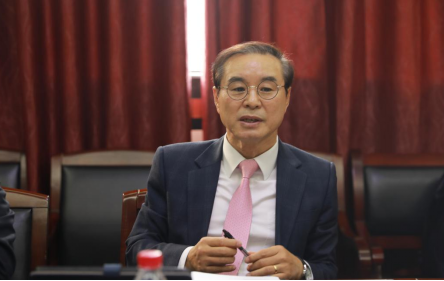
(KIM Hyunsoo)
Associate Professor Huang Wei’s topic was “Fish Issues in the Maritime Delimitation between China and South Korea”. He stated that, despite some problems such as illegal fishing and illegal enforcement, the overall effect of the implementation of the China-Korea Fishery Agreement was still worthy of recognition. Before demarcating the maritime boundary, China and South Korea could continue to implement the agreement and further improve relevant measures. Legally, the agreement and all initiatives do not affect the maritime delimitation of China and South Korea and do not hinder the final demarcation of the maritime boundaries between the two countries. It is evidenced that China's dependence on fishery resources in demarcated seas is significantly higher than that of South Korea, and China has traditional fishing rights in the South Korean side of the suspension zone. With reference to international experience, China could claim that fishery factors should be given corresponding effects in the maritime delimitation between China and South Korea as special or related circumstances. At the same time, there are data showing that many important fish stocks migrated across the waters claimed by both two countries. In order to effectively conserve and sustainably use fishery resources, China and South Korea can consider addressing maritime delimitation and fisheries issues on a more holistic basis.
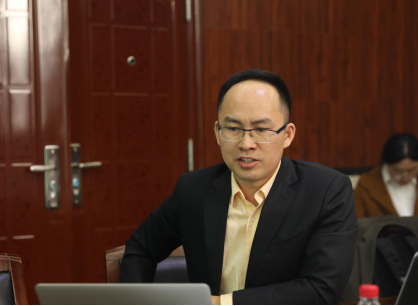
(Huang wei)
Prof. BANG Hosam’s speech was entitled “Illegal Fisheries and State Responsibility in the Yellow Sea”. In his view, with the continued development of fishery resources in the Yellow Sea, the current fishery management mechanisms in China and South Korea have limitations in the balance between stability and flexibility. The differences between the relevant laws of the two countries and the potential threat of force in the conflict of fisheries are crucial to the development of the Fishery Law. At the same time, China and South Korea are required to make multi-faceted efforts based on the spirit of the agreement. In addition, fishermen who are well educated play an important role in the implementation of the Fishery Law. Fundamentally speaking, the fishery law is a law closely related to the interests of fishermen, which should be observed and realized through the legal education to fishermen.
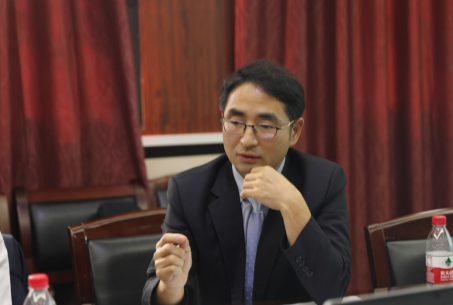
(BANG Hosam)
Prof. Kong Lingjie expressed his views on the use of force in maritime law enforcement under the framework of international law. Prof. Kong conducted a comparative analysis of the concept of “use of force” in maritime law enforcement and general international legal relations. Considering the characteristics of legality, rationality and procedural requirements of international legal norms, he further analyzed relevant international law cases based on international conventions, bilateral agreements and related soft law. He believes that the principles of the use of force exist in maritime law enforcement and should be observed by all countries. Although the boundary between the use of force in maritime law enforcement and the use of force against other countries in general international relations is not completely clear, and the interpretation and application of relevant principles haven’t formed a unified standard, the countries concerned should work to peacefully resolve the dispute over the use of force in maritime law enforcement.
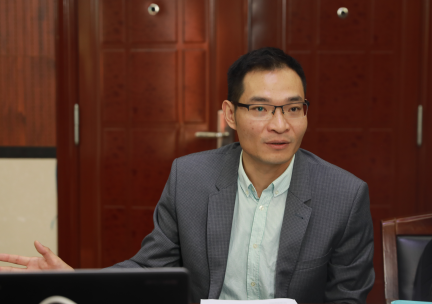
(Kong Lingjie)
In his concluding remarks, Prof. KIM Hyunsoo pointed out that it is very important and necessary to carry out research on the above topics around the maritime cooperation between China and South Korea. This is of great significance for safeguarding the legitimate rights and interests of the two countries and promoting the friendly development between the two countries. He hoped that experts from the two countries could continue to maintain cooperation and contact, and together make contributions to the peaceful development of China and South Korea.
(Rewritten by Wang Xiaiwei)
(Edited by Fu Shanshan)
